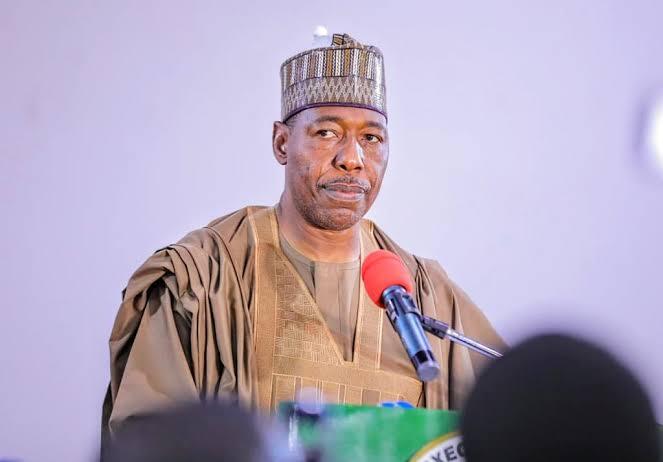The administration of Prof. Babagana Umara Zulum, Governor of Borno State, has placed youth empowerment, employment, entrepreneurship, and engagement at the heart of its development agenda. Recognizing the youth as the engine of progress, the state government has implemented transformative policies and programs designed to equip young people with skills, resources, and opportunities for self-reliance, peacebuilding, and community development.
1. Skill Acquisition and Vocational Training
Establishment of vocational centers across the state to train youths in trades such as carpentry, tailoring, welding, beauty services, grinding, and fashion design.
Partnerships with organizations and community-based initiatives to ensure sustainable skill transfer.
2. Distribution of Working Equipment
Empowerment initiatives include distribution of sewing machines, grinding machines, deep freezers, tricycles, Hijet mini trucks, and agricultural tools.
These interventions support youths in starting small and medium-scale businesses.
3. Cash Support and Grants
Thousands of beneficiaries receive direct cash packages (₦100,000 and above) to strengthen their businesses.
Provision of starter packs ensures immediate engagement in economic activities.
4. Entrepreneurship and Access to Capital
Establishment of Borno Renaissance Microfinance Bank to facilitate access to startup capital.
Billions of Naira distributed to support tailors, GSM dealers, and traders in Maiduguri Monday Market.
Entrepreneurship training programs promote innovation, resilience, and long-term growth.
5. Poverty Alleviation and Social Safety Nets
Deployment of grants, microcredit schemes, and resettlement packages to lift families out of poverty.
Integration of vocational training with social support enhances sustainable development.
6. Modern Farming and Agribusiness
Training programs on modern farming techniques to boost crop yield.
Access to quality agricultural inputs and mechanized equipment provided to young farmers.
7. Sports Development
Sports harnessed as a tool for talent discovery, social engagement, and unity.
Youth sports initiatives provide alternatives to violence and foster leadership.
8. Recovery, Reconstruction, and Resettlement
Youth actively engaged in the reconstruction and rehabilitation of insurgency-affected communities.
Resettled families receive livelihood support packages, food, and non-food items.
The Borno Investment Promotion Agency attracts opportunities that create youth employment.
9. Capacity Building and ICT Development
Strong emphasis on education, leadership training, and vocational skills to empower youths as peacebuilders.
Borno Information and Communication Technology Development Agency (BICTDA) trains youth in digital literacy, provides access to facilities, and promotes innovation.
10. Partnerships and Collaborations
Collaboration with the Federal Government, HERWA Community Development Initiative, and educational bodies to broaden reach and resources.
Joint initiatives ensure sustainability and inclusivity of empowerment programs.
11. Community Engagement and Nation-Building
Youth encouraged to participate in governance, community decision-making, and peacebuilding efforts.
Promotion of accountability, civic responsibility, and nation-building values among young people.
Conclusion
Governor Babagana Umara Zulum’s administration has built enduring legacies of empowerment, opportunity, and resilience for Borno youth. By combining skills training, entrepreneurship support, financial empowerment, ICT development, and community engagement, the government ensures that young people are not only beneficiaries but also key drivers of peace, development, and sustainable economic growth in Borno State. Hon. Umaru Bako Alhaji,

